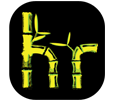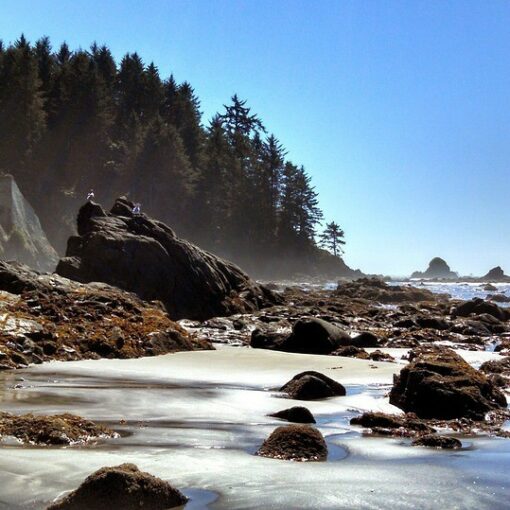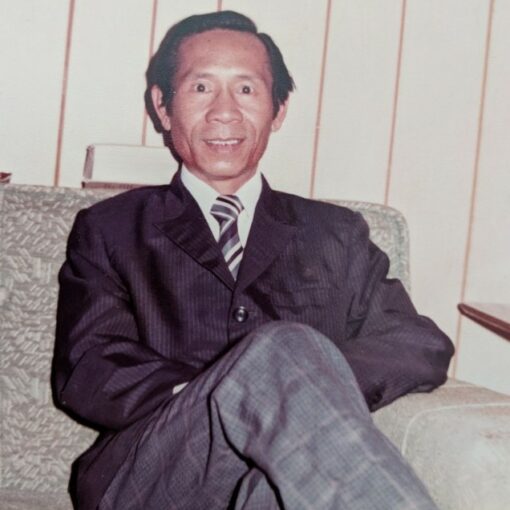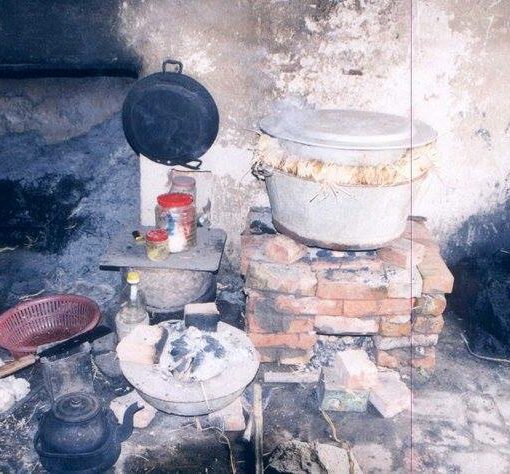Island Hopping
By nightfall, our boat came across a small Malaysian fishing boat. The captain knew that we were near land. We were traveling in the pitched dark and did not know which direction to go. He gave money to the fisherman for direction to the nearest shore.
By morning, our boat floated through a channel toward the beach. On the mainland, there were many commotions. Children ran to the pier screaming and waving in the distance. Immediately, the Malaysian Navy ship came out to escort us back out to sea. However, the boat captain did not follow the navy ship, he ran the boat straight into the beach. He took a huge risk but it was well worth it. We had nowhere else to go and no more food left. We will certainly die at sea.
Once we arrived in mainland Malaysia, Chú Thưởng was asked to put all of his bags to one side. Chú Thưởng watched the Malaysian soldiers emptying his bag along with many others. The soldiers collected and kept all valuable items from the passengers’ bags including Chú Thưởng’s album of coin collection. Refugees were second-rate citizens. We were only passing through and had no rights.
Once we got on land, my mom found a plastic container, a little rice, and salt. She made porridge. My dad cut off the handle from the container and poured in the porridge. We each received a spoon and went to town. We were ravenous like little piglets. It was delicious.
By the next day, we were transferred to Pulau Besar. It was a very crowded Vietnamese refugee camp. My parents bought a small house. We lived in Pulau Besar for only a few weeks then we were transferred again to Pulau Bi Dong.![By diligam_te (Flickr: pulau bidong 11) [CC BY 2.0 (https://creativecommons.org/licenses/by/2.0)], via Wikimedia Commons Pulau Bi Dong](https://s3.amazonaws.com/images.wealthyaffiliate.com/uploads/1090637/sitecontent/e35c64ce09639c0f9d2b7776c3fed506_cropped.jpg?1525238293)
Pulau Bi Dong was deserted with only a Navy watchtower. Our ship was the second ship to be on the island. UNHCR provided several large tents for us. There was one well with very little water available.
We all settled at Pulau Bi Dong while waiting for being sponsored. On the first night, Chú Thưởng remembered looking for coconut leaves which are the largest leaves around to use as our sleeping pads against the hard ground. He found some. On his way back to camp and unaware, Chú Thưởng dragged the leaves over some human feces. When we all lay down to sleep that night there was a strange yet familiar smell. No one complained. We were all thankful to have a place to sleep and rest our weary heads.
While on the island Chú Thưởng and Anh Huy helped my dad every morning chopped wood and building our house. After breakfast, Chú Thưởng took off with Anh Huy to go fishing. They borrowed the neighbors’ goggles to swim and fish. There were many fishhooks stuck in the corals left by previous fishermen. They used the hooks with the little fish as bait for the bigger fish. The goggles allowed them to see underwater so they can choose the biggest fish to catch with their fish hook and bait. Chú Thưởng and Anh Huy often swam out to the deep end and fished underwater. They caught lots of fish for dinner. We would share with the neighbors.
The beach was pristine. The ocean was like what you see in the footage of Jacques Cousteau movies. There were so many colorful fish, eels, corals, small sharks, and aqua life. It was a paradise. The picturesque scenery is engraved in Chú Thưởng’s mind. Something that he will never forget. Chú Thưởng and Anh Huy taught us how to swim and hold our breaths. It was so much fun. It was a worrying-free life. The only concern was how long before we would be sponsored.
There was no school, no work, or no worries about making a living. The UN gave us monthly food supplies. It was simple living with nature. Chopped wood in the morning, swam in the ocean in the afternoon, and played with his cousins all day long. It was a great life for a teenage boy.




